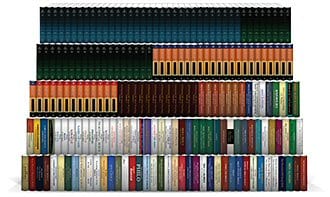
“Of making many books there is no end” (Ecclesiastes 12:12)
I have heard it in person, I have been questioned on Facebook, I see it all the time on blogs: does the world need more commentaries?
Truth be told, I myself have never had a problem with the proliferation of commentaries because I am that rare odd duck that likes reading them! But the question is fair. Before I get to why I think the fresh writing of commentaries is a good thing, allow me to bust one myth:
Myth: Commentary series are all about money.
I like to tell this joke: “Every time I get a royalty check in the mail for my commentaries, I cash it in and buy a nice cup of coffee.” Okay, that is a slight exaggeration, but the point shouldn’t be missed that many commentary authors average out to less than $1.00/hour of work. (Yes, I have done the math for myself.)
What about the publishers? Trust me, none of the editors I know drive a Mercedes. I used to work for a publisher so I know more about them than most academics; they live “modest” lives. Perhaps some publisher-CEO somewhere is doing well ($$$), but probably not off of academic commentaries.
OK, so why commentaries? Aren’t there enough out there? Well, yes and no. Yes, there are plenty more out there than a generation ago. And, yes, we are seeing some works that don’t serve much of a purpose as they are re-hashing other commentaries. BUT here are three reasons why I continue to write commentaries.
#1: Staying grounded. I write commentaries so that I can stay grounded in the text, and not float away into theories and constructs. I try to stay active with at least one commentary at a time so that I am continually being challenged inductively by Scripture as I work verse-by-verse through a text. As I write more thesis-driven books, doing the commentary work makes me a much better theologian, and it keeps my exegetical skills fresh.
#2: Commentary-writing is the responsibility of every new generation. It is not just about word studies and new methods. It is a challenge to each generation to wrestle and reckon with the Word of God in the changing state of life on earth. There is a reason why many of the best theologians throughout history have preached on or written through biblical books (e.g., Chrysostom, Calvin). It is a salutary sign that many pockets of the modern Church are wanting to hear God anew and respond. Are there dull, uncreative commentaries out there? Sure, but some commentary (e.g., by Luther, Barth, Martyn) have shaped scholarship in significant ways.
#3: We are welcoming new voices and locations into the commentary-writing world of scholarship. Particularly distinctive of commentaries in the last decade or two is the push to include new perspectives and voices, particularly those of women (e.g., excited about Gaventa’s Romans), non-Caucasian Westerners, and global scholars. Personally, I am very excited about this and the impact it can have on both the academy and the Church.











